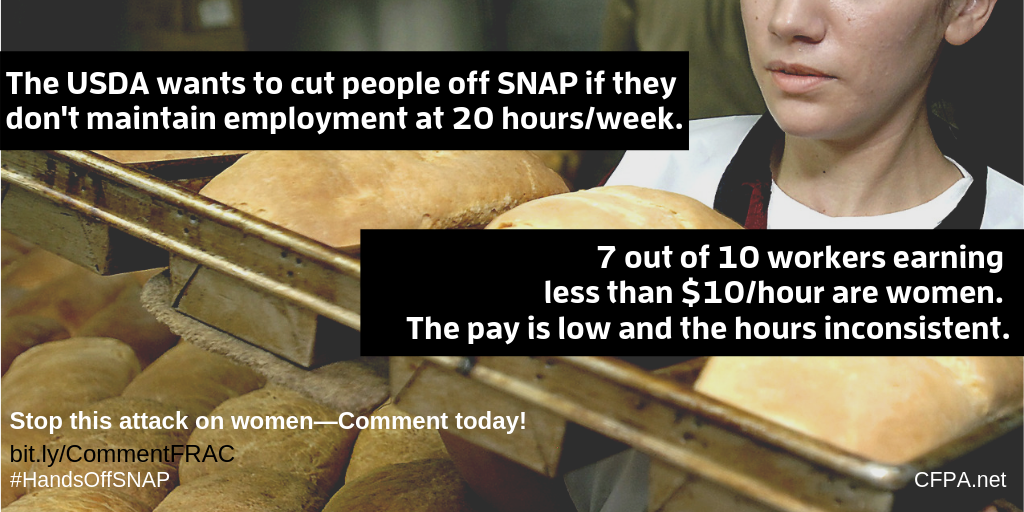USDA’s proposed rule to increase the number of SNAP participants subject to a time limit on assistance is an attack on women, children, and vulnerable young adults. The rule is based on the flawed assumption that persons subject to the time limit should have no real barriers to employment if they live in a city with relatively low unemployment. This diminishes the significance of the overlapping and interlocking barriers to opportunity this group faces.
Of those subject to SNAP’s time limit 46 percent are women, who face multiple barriers to stable employment.
- Women are overrepresented in the low-wage workforce: 69% of workers earning less than $10/hour are women.
- Women in low-wage work are more likely to face discrimination and harassment, many on multiple fronts based on their race, disability status, sexual orientation, or gender identity.
- Some of these women are domestic violence survivors, who face particular challenges to finding and maintaining employment.
Imposing SNAP time limits on non-custodial parents and informal caretakers would disrupt their ability to support their children and family members.
- SNAP helps non-custodial parents afford child support payments or food for their children during visitation.
- Many children living in poverty depend on pooled resources from extended family members, including SNAP.
SNAP time limits would disproportionately harm young adults experiencing poverty, including former foster youth.
- Only half of young adults that aged out of the foster care system will obtain employment by 24.
- In 2018, the youth unemployment rate was more than double the overall rate (3.9%), but for black young adults it was four times greater (16.5%).
Maintaining state flexibility to exempt vulnerable adults facing structural barriers to employment is essential to making the SNAP program responsive to people’s economic realities. This proposal is an unwise expansion of a harsh, unfair, and counterproductive policy.
Act now to stop this harmful regulation!
No one should be penalized for lack of opportunity. Here’s how you can help stop this proposal from becoming law:
Submit a comment in opposition to the rule!
Download our template comments here.
Submit your comments here by April 2nd, 2019.
Spread the word!
After adding your comment on the rule, encourage at least two people in your network to do the same. Every comment matters!
Share this tweet to get the word out!
SNAP time limits hurt families. Simply because a person has no legal dependants, doesn’t mean they’re not parents or caretakers. Cutting their SNAP due to lack of employment causes a ripple effect of harm. Stop the rule
bit.ly/CommentFRAC #HandsOffSNAP
Questions?
Contact Jared Call at 213.482.8200 ext 201.





